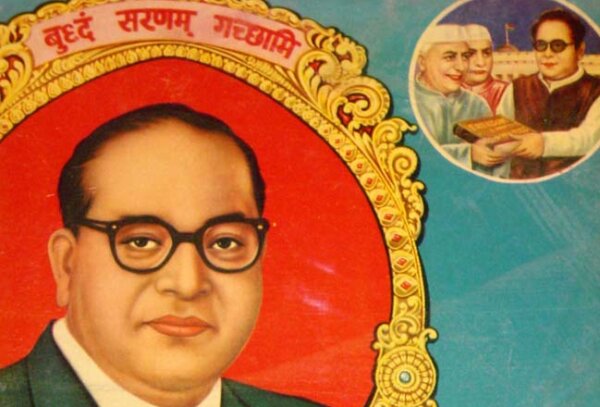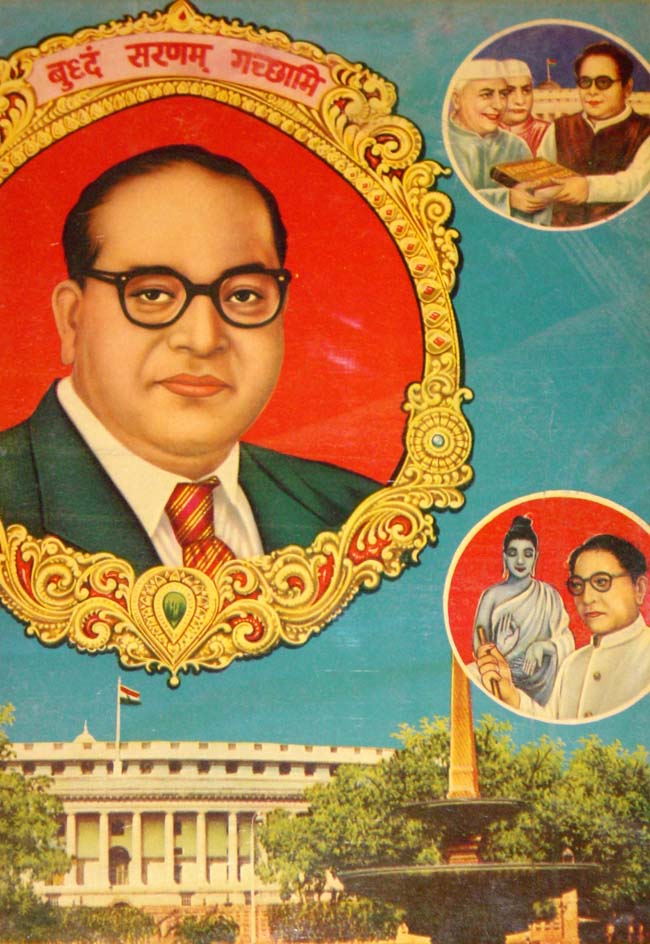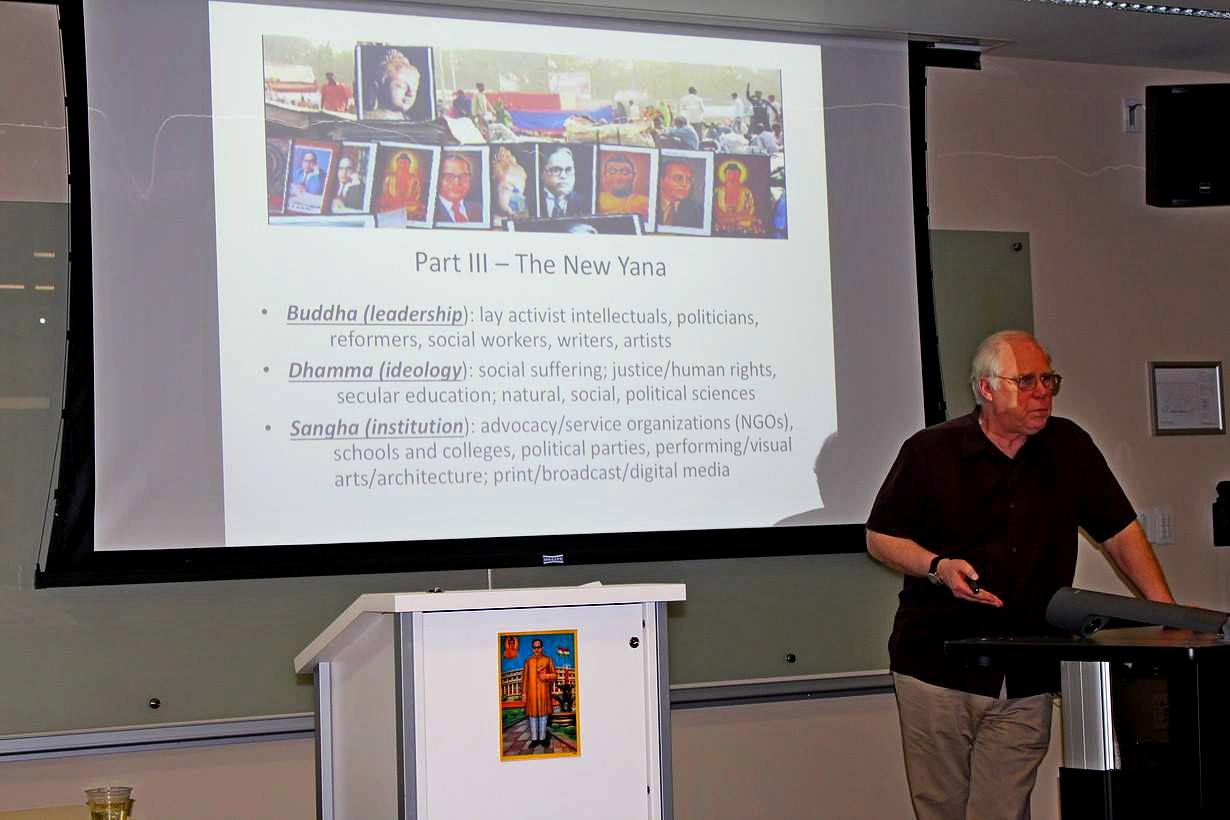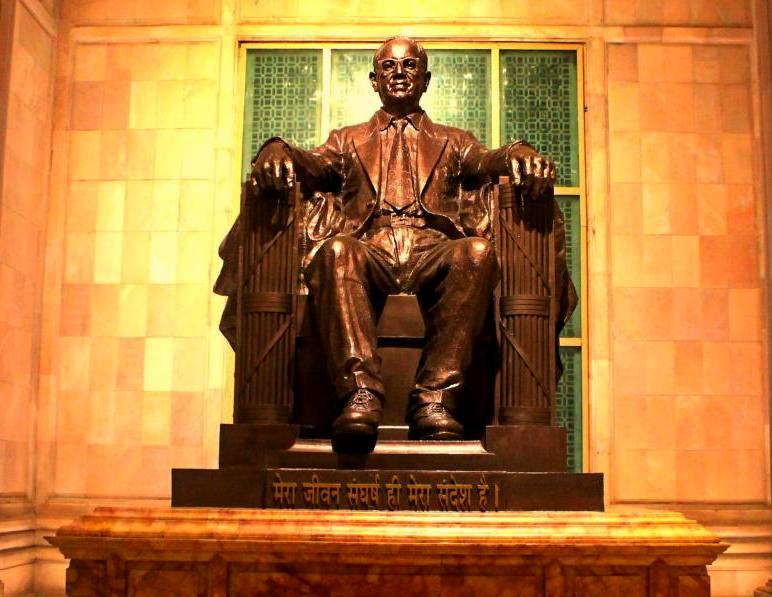
The Media Ethics Initiative Presents:
Who Speaks for Ambedkar? The Debate over Navayana’s Edition of Annihilation of Caste and the Buddhist Teaching of Right Speech
Dr. Christopher Queen, Harvard University
January 24, 2017 — 1-2:30PM — Room: BMC 5.208
Following the 2013 release of Navayana’s annotated critical edition of B. R. Ambedkar’s Annihilation of Caste with an introductory essay by Arundhati Roy, Dalit (ex-Untouchable) activists angrily charged that Roy and the publisher were unqualified to write on Ambedkar by virtue of their high-caste backgrounds. We examine this war of words in the context of Ambedkar’s career as the leading voice for Untouchable human rights and as principal draftsman of India’s Constitution. We compare the attack on Navayana’s Annihilation of Caste to the original attack on Ambedkar’s 1936 speech (original speech here).
Given Ambedkar’s historic conversion to Buddhism, along with millions of this followers, we examine the teaching of Right Speech, the fourth step on the Eightfold Path, found in the early sayings of the Buddha. We learn that criteria for choosing speech or silence do not include the caste, gender, ethnicity, or expertise of the speaker, but rather the truth, timeliness, tone, and benefit of the words. Whether the words need to be “gentle” or “harsh” depends on the situation, according to the Buddha.

Christopher Queen lectures on World Religions and Buddhist Studies at Harvard University Extension and Summer Schools, where he also served as Dean of Students and Alumni Affairs for Continuing Education for 20 years. His holds degrees in religion, theology, and the history and phenomenology of religion from Oberlin College, Union Theological Seminary, and Boston University. His publications center on socially engaged Buddhism and the Buddhist liberation movement of Dalits, the ex-untouchables of India, spearheaded by B. R. Ambedkar – scholar, activist, and father of the Indian Constitution. Queen co-edited four anthologies on contemporary Buddhism and has published numerous articles, chapters, and reference entries on Ambedkarite Buddhism and Socially Engaged Buddhism. He is the former board president of the Barre Center for Buddhist Studies, and co-founder of the Dharma Chakra Mission and Academy, serving low-income citizens in Bodhgaya, India.

Supported by:
Ambedkarite Buddhist Association of Texas
South Asia Institute (UT Austin)
Free and open to the UT community and general public
Closest Parking Garage
For further information, contact Dr. Scott Stroud


